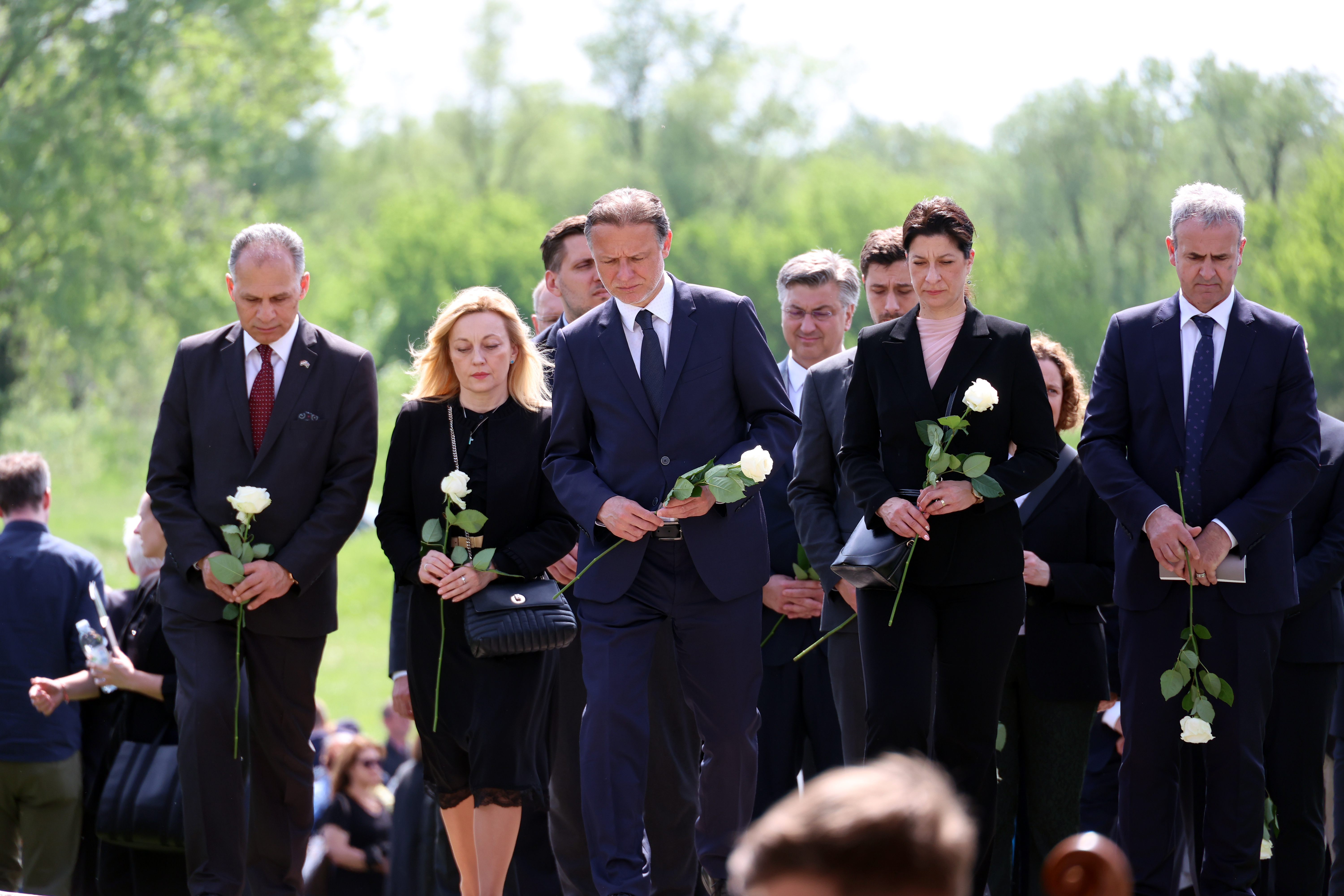
Zagreb - Croatia’s top officials, ethnic minority representatives, and survivors gathered on Tuesday in Jasenovac to commemorate the 80th anniversary of the breakout from the Ustasha-run concentration camp.
Held under the title "80 Years, 80 Lives", the commemoration was organised under the auspices of the Croatian Parliament and attended by President Zoran Milanović, the Speaker of the Parliament Gordan Jandroković and Prime Minister Andrej Plenković,
All those present walked a symbolic path made of wooden railway sleepers, representing the tracks on which prisoners were transported to the camp, to commemorate the 80th anniversary of the breakout of the last remaining inmates of Jasenovac.
After gathering in front of the Memorial Museum, the remembrance procession to the Flower Monument was led by President Milanović and PM Plenković, followed by a programme of speeches, flower-laying, and candle-lighting ceremonies.
The government delegation included ministers Davor Božinović, Gordan Grlić Radman, Nina Obuljen Koržinek, Damir Habijan, Marin Piletić, as well as the Prime Minister’s special advisers Sara Lustig, Mate Granić and academician Zvonko Kusić, alongside Tibor Varga, head of the Council for Ethnic Minorities.
Among those in attendance were representatives of the minority communities who had suffered under the Nazi-style Ustasha regime: Boris Milošević on behalf of the Serb National Council, Ognjen Kraus representing the Jewish community, and Veljko Kajtazi for the Roma minority. Franjo Habulin represented the Alliance of Anti-Fascist Fighters and Anti-Fascists. Other attendees included foreign diplomats, political party representatives, local authorities and former Croatian President Stjepan Mesić.
The ceremony included a musical performance, readings from testimonies of survivors, and interfaith prayers led by dignitaries of the Orthodox, Jewish, Catholic, and Islamic communities.
The commemorative programme was hosted by students of the Zagreb Academy of Dramatic Art, who highlighted a shift in commemorative practice towards education. They noted an increase in school visits to the Jasenovac Memorial Site - by the end of August, students from 81 Croatian schools are expected to visit.
As part of the ceremony at the Flower Monument, 80 candles were lit as part of the narrative "80 Years, 80 Lives", each bearing a short biography and photo of a victim. This symbolic gesture was designed to reflect the composition of victims from Jasenovac and Stara Gradiška camps and to raise the cultural standard of remembrance for the individuals who suffered.
Speaker Jandroković and Prime Minister Plenković also laid wreaths at the memorial plaque at the Roma cemetery in Uštica.
On 22 April 1945, as the Second World War neared its end, 600 prisoners attempted to break out of the Jasenovac camp. Just over 100 managed to reach freedom. The remaining prisoners – many of whom were too weak or ill to participate – were killed and burned along with the camp buildings.
During the 1,337 days of the camp’s existence, over 83,000 people were killed, according to verified data.
Over nearly four years, the Ustasha-run Jasenovac camp was a site of immense suffering and death for thousands -including men, women, and children - Serbs, Roma, Jews, political prisoners, as well as Croats, Bosniaks, Slovenes, and members of other ethnic groups.